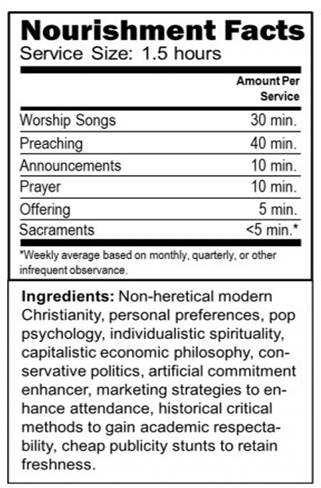 If you had access to the external world only through the sense of smell, how would you perceive reality? Your entire universe would be nothing but a series of weak and strong odors; some pleasant, others putrid. If you encountered other beings in the universe, you would distinguish them only by their unique scents—if, that is, they had any discernible scent at all. A person with only the sense of smell may not have enough data to establish his or her own spatial or perhaps even temporal location; certainly they would have no concept of corporeality. In short, the sense of smell alone is insufficient for a being to construct a complete, accurate, or functional picture of the external world—or even one that is at least sufficiently close to complete, accurate, or functional.
If you had access to the external world only through the sense of smell, how would you perceive reality? Your entire universe would be nothing but a series of weak and strong odors; some pleasant, others putrid. If you encountered other beings in the universe, you would distinguish them only by their unique scents—if, that is, they had any discernible scent at all. A person with only the sense of smell may not have enough data to establish his or her own spatial or perhaps even temporal location; certainly they would have no concept of corporeality. In short, the sense of smell alone is insufficient for a being to construct a complete, accurate, or functional picture of the external world—or even one that is at least sufficiently close to complete, accurate, or functional.
The same thing can be said about all of the five senses—sight, smell, touch, taste, hearing. If any of these senses is missing, a person’s perception of the world would change. He or she may be able to function and communicate in the world, but the subjective experience of the external world would differ drastically from a person with all five senses.
Now, if I were a person with only the sense of hearing and I encountered another being who told me about his own sense of seeing, which I lacked, I would have no category within which to understand a concept like “sight.” Nor would I be able to understand ideas like bright, dark, red, or blue. A seeing being would have no way of explaining what my missing sensations were like, nor would I be able to imagine the kind of world such a person experiences. Though I could be made intellectually aware that I am deficient, I would have no way of knowing what that actually meant. Not really. I would, in fact, continue in my current state of perception as I always have.
If a person with, say, only three senses—the senses of touch, smell, and taste—endured for a lifetime without any knowledge that there were other senses available, that person would have no reason to think there were such things as sight and sound. A person with only these three senses may believe that three and only three senses are sufficient to grant him or her complete, accurate, and functional access to the external world. Such a person would, of course, be wrong, but left alone he or she would be unaware of the error.
Granted, modern humans have used technology to expand their ability to acquire data about the universe. Though hidden to our sight, we can detect infrared and ultraviolet light, radio waves, and radiation. We can examine tiny organisms as well as remote bodies through the use of microscopes and telescopes. But all of these forms of technology work within the existing five senses—enhancing and improving, not supplementing or adding to, the senses of sight, sound, taste, touch, and smell. These means of measuring otherwise invisible or inaudible things in our world have, indeed, altered the perception of reality for modern humans, but these means themselves depend entirely on our five senses. In a similar vein, theoretical physicists can hypothesize about the existence of numerous dimensions beyond those of our limited perspective, but in that case they have no way of imagining or experiencing such theoretical dimensions. They are aware of such possible dimensions through mathematical calculations and “picture” them through analogies and illustrations bound by experiences of their five senses. It is, in short, impossible to conceptually break from the constraints of the five scent perception of the external world.
This brings me to my point.
How can humans have any confidence that additional senses beyond our five would not radically alter our perception and experience of reality? If three senses are better than two, and four better than three, and five better than four, why wouldn’t six, seven, or eight be better than five? We cannot simply respond to such a question by saying, “I can’t imagine what those additional senses would be,” because a person who has only one could not imagine a second, and person with only two could not imagine a third.
So the question remains.
Could there be additional senses, which, if we had them, would radically alter the way we perceive and experience the external world? Would the hypothetical extra senses grant us access to a world similar to ours but more complete, fuller, deeper? As rational beings, we must acknowledge this possibility. But what about its probability?
This is where things get quite messy. Is it probable that we human beings have evolved the precise number of senses to completely and accurately perceive the world around us? Or is it probable that our sensory organs provide us with enough data to at least approximate reality? We know of small, primitive beings that do not possess the five senses we have, and people typically place such life forms into a category of less-evolved beings. But on what basis do we conclude that natural selection would develop five senses with a quality to provide an accurate perception of reality when their data are synthesized by the mind into a coherent whole?
The answer? From a purely naturalistic perspective, humans have no reasonable basis to have confidence that our five senses are sufficient. In fact, it seems more probable that naturalistic evolutionary processes would take the easiest route, as survival of the individual and propagation of the species—not epistemological accuracy—is the result of unguided evolution. Of course, we rational beings would naturally hope that our five senses were not merely all that was necessary for survival (functional sufficiency), but that they were adequate for providing a complete or nearly-complete experience of the external world (epistemological accuracy). While our five senses may provide a functional experience of reality sufficient for the purpose of survival, within a naturalistic view of evolution, our five senses cannot be trusted to provide an accurate (i.e., dependable) experience of reality.
However, I can posit an alternative understanding of the sufficiency of our five senses to provide an accurate or near-accurate experience of the external world. But for such a presupposition to be accepted, one must believe that human beings were designed for the purpose of accurately perceiving the external world, not merely evolved toward the function of survival and propagaion. If humans were designed to live in this particular universe, it is possible to believe that the designer equipped humans with no more and no less senses than are necessary to accurately perceive the external world. And depending on the character of that designer (good, powerful, truthful), one might conclude that such a presupposition about the ability of human beings to accurately experience the external world through their five senses is probable. Of course, a theist must acknowledge that there may be things in the world that go beyond what the designer intended for its creatures to perceive, but in any case the five senses would be sufficient to provide an accurate or nearly-accurate experience of the external world.
This brings me to my closing point. Any human being who believes that he or she possesses enough senses to draw confident conclusions about the external world on a daily basis is inherently drawing on the presupposition of intelligent design (whether evolutionary or non-evolutionary), not of naturalistic evolution. The former presupposition makes the sufficiency of the five senses a probable hypothesis; the latter presupposition does not. Apart from the hypothesis of an intelligent designer who equipped humans with the appropriate number and variety of sensory organs, the question of the sufficiency of the five senses for accurately experiencing the external world becomes, in my mind, an insurmountable problem. An atheist who appeals to evolution necessarily can have no epistemological confidence in his or her ability to adequately gather and to accurately analyze data about the world as it really is. The empirical sciences that form the foundation of their worldview seem to require a presupposition about the nature of sense perception that argues against their methods and conclusions. Only by appealing to an intelligent designer who equipped humans with sufficient senses for accurately experiencing the external world can a person reasonably engage in the empirical sciences.





